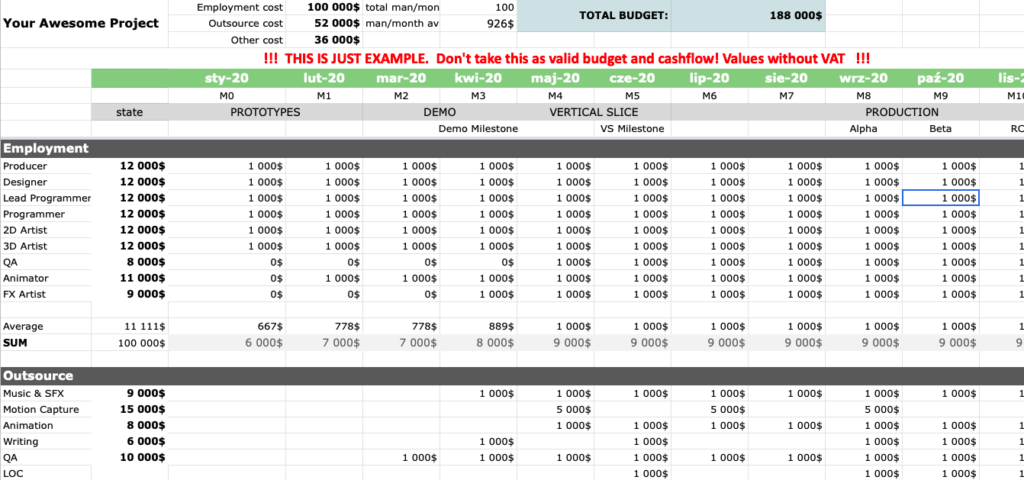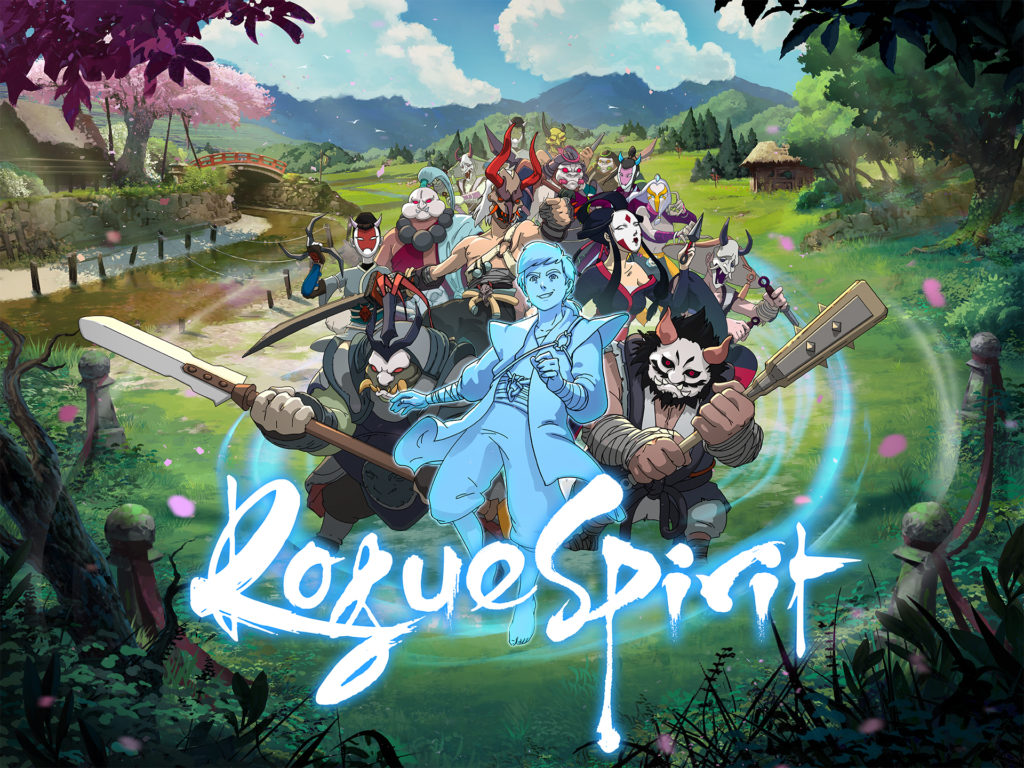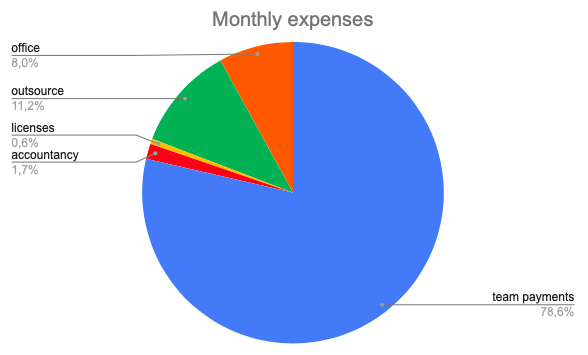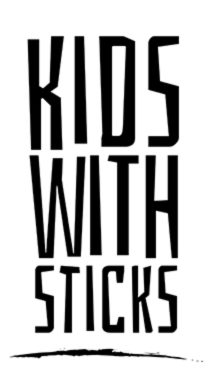Starting a game development studio: tips & failures

Introduction

We would like to tell you a bit about our pipelines, workflow and production process. We believe open development can help other developers; we are like one big family, after all.
Keep in mind that we are by no means any gurus in our field. We are Kids who have set off on an adventure. Andrew acquired some production experience when he worked as a senior producer at Vivid Games, a mobile department lead at Techland and a studio director at Artifex Mundi Wroclaw.
BUT starting a studio by yourself is a different piece of cake. Much harder and much more stressful.
Here is Kids With Sticks’ founding story that we hope some of you might find helpful.
You need a strong team

Where to start? First of all, you need to have a team that can start a studio.
Here in Poland, there is A LOT of game developers. Everyone wants to create something. It’s truly a great country to build game development teams in.
We wanted to have a team consisting of members who:
- Share the same values, (philosophy and values),
- Can trust each other, (we don’t have CEO),
- Are honest,
- Have the necessary skill,
- Are team players,
- Are hard working.
Investors and publishers are looking for:
- People with trackline,
- Teams that previously worked together,
- Established companies with shipped titles,
Our main team’s feature was we already experienced working together and thus didn’t need to worry about learning everyone’s strengths, weaknesses, and work styles from scratch. We think this shared experience is the most important aspect of a strong team. It allowed us to start working on prototypes right away.
If you hire someone new – make sure he/she will fit in. Sometimes even most experienced developers might not be compatible with your team and can cause a lot of damage.
Make sure you’re developing a realistic project that your team is able to deliver.
Studio and project responsibilities

When working in a team it helps to define responsibilities and ownership for each major part of the game and studio.
For the project we have selected some responsibilities:
Producer
Responsible for deadlines, project scope, overseeing short- and long-term goals. He needs to know the speed of the project’s development.
Gameplay Director
Responsible for designing and implementing (or delegating) gameplay. He decides about everything that’s connected to gameplay, and we put gameplay first.
Art Director
Responsible for artistic vision, making sure that art suits the gameplay and that every artist can work on the project without interruption.
In this project we distributed responsibilities focusing on animation, FX, visceral combat, UI, etc. – basically each part of the game.
As for the studio, we have selected Bizdev, Cashflow owner, PR manager, accounting etc – you can imagine that we have a lot of responsibilities.
What responsibility and ownership means?
It means that you have the decisive power over the topics you are responsible for. Everyone else contributes with feedback; in other words, you consult your work with others. Of course, you need to consult with Art Dir, Gameplay Dir and Producer about your work and if its place in the project as a whole. You own the elements of the game you work on and you need to make sure you develop them steadily and are able to deliver the expected quality.
As you may know every team struggles with different problems. From time to time we review responsibilities and change them if needed. Constant feedback is important and we are trying to do share some on a daily basis.
Game ideas & prototypes

So we have a team; what’s next? Let’s prototype our ideas!
At this stage, we were working without any gratification. At home. Andrzej left his company. Time was critical as we hadn’t had much savings.
First, we picked around 4-6 prototypes to create. The most important questions we asked ourselves about the prototype were:
- Is core gameplay self-explanatory?
- Does core gameplay support mastery?
- Do we want to play again with only core gameplay mechanics?
- Is core gameplay unique enough?
- Are we able to create this game with our team?
This topics are so complex that we decided to write a separate post about them.
As for prototypes design… well, it was just discussion. While at prototyping stage, you need to focus on the gameplay more than on creating documentation, (basically, in small teams, documentation sucks; don’t use it or else you will focus more on updating it than on actual gameplay).
At this stage, we focused only on these aspects. After some time, we decided that we had something there. We picked one of the prototypes.
In the meantime we participated in Epic Jam, just to add another piece of crunch to our daily crunch…
Demo
Next step was to create a playable demo from the selected prototype for investors, publishers, and friends. We didn’t have much time left. The remaining Kids left their jobs to help out. Basically, if you want to create a decent demo, you should give it your 100%. It’s hard to work on two projects, and even harder to start a new studio outside of your regular job.
If you believe in something – stay 100% focused on it. We know: it is easy to say. You need money to live. It’s risky, but we believe we have something there. We want to create peaceful and creative environment for game developers. Kids with Sticks is something we want to take the risk for.
Our demo goals were as follows:
- Everyone can pick the game and play it without any instructions from our side,
- It should be easy to learn and hard to master,
- It should tease whole game,
- It should have enough gameplay mechanics so that you can play it multiple times,
- It should have exciting graphics,
- It should be small: ~100MB,
Plus all the things from prototype goals. It turned out we still had something there. We were almost ready to start searching for funding.
Studio & game pitch
While creating the demo we were working on the studio & game pitch as well.
We created a Team Composition document, which is normally required by publishers/investors. We can share it with you.

We can’t show you the project pitch yet, as, basically, we can’t talk about the game yet.
BUT we can tell you what things it focused on:
- We included a lot of graphics, lots of art samples – to demonstrate the artistic premise of our game,
- High concept, (what is your game about? Is it interesting?),
- Scope, (platforms, budget, content, etc.),
- USP & Game features,
- Art style,
- Story,
- List of environments and levels,
- Separated slides for USPs with more detail,
- Proof of concept demo, (this was our demo)
- Game references, (gameplay references)
- Bizdev references, (similar games, with sales reports)
Some of the publishers requested a 30-second gameplay description as well.
When ready, we pinged all of our friends about Kids with Sticks and our pitch. We are lucky to have many friends, and we are really thankful for their support.
Interest was big enough to start a new, independent company and have funding for a vertical slice. If we hadn’t had friends and couldn’t talk “under the table” we would post something on Twitter and reach people (publishers and investors) in a standard way. After showing our environments on Twitter, several published reached out to us. So, don’t be afraid to show your work, as long as you have something worth showing.
You should also define your expectations in regard to your investors and publishers:
- They need to have a trackline, (delivered games),
- You are able to trust each other, (talk to people who work with them),
- You need to “click” and by that we mean to see eye to eye, have the same mindset,
- You need to have ownership of the project,
- They should share your vision,
- They should be flexible in regard to the contract and cashflow. They should have game development experience and be aware that the project can and will change to some degree.
And yes – there is a lot of great publishers and investors out there!
Health
Every game developer knows what crunch is. Every game developer knows what depression is. Every game developer knows what a burn-out is. There seem to be a sinusoidal pattern to our work-life balance. For example, Andrzej works hard (15h+) for 2-3 days. Then he takes a break for 1-2 days. Every time he comes back, he’s revitalized and full of new energy.

We think every game developer should follow such a pattern, as it’s most effective. Guys, invest time to relax, and trust us, when you get back to work after a break, you will be 10x more efficient. Your brain needs to rest. Your body needs to work out so your brain can rest.
We know it’s not so easy. We know the meaning of hard work. Milestones, passion, “something cool” – you never have time to rest. Believe us, you need to invest time to take a break. Force yourself and try. You won’t regret and you will see its benefits.
Try it, even now.
Cashflow

Another piece of studio pitch was focusing on the cashflow. You need to know how much funding you need. It’s really hard to plan a whole game (2-4 years), but you need to do it.
We prepared an example of cashflow for you here.
Cashflow features:
- You need to know how much money you have in your bank account.
- Track VAT return and other tax returns.
- Publishers need to know what part of the game you are investing into, so they can calculate the risky bits.
Our failures:
- Taxes are different in each country. Make sure you understand the system or hire someone who knows when you will get a tax return. Publishers/investors may not have the knowledge of how taxes work in your country. Taxes, e.g. withholding tax, should be a big part of your cashflow.
- Internet. It’s expensive for companies! You won’t be able to use your “home Internet”, which is cheap here in Poland. We didn’t know about it, and hadn’t budgeted it.
- VAT. In our country (Poland) we were asked to provide a contract translated into Polish to be able to get VAT back. That was another significant expense we weren’t planning. Sort it out while designing a cashflow.
- Maybe in your country you are required to pay to start a company.
Some takeaways:
- Keep a buffer for an office,
- Make sure you get payments quickly enough to be able to get VAT tax return. Basically you need to have available means in your bank account to be able to make monthly payments – that’s your goal,
- Make sure your cashflow is in the currency you are getting the funding in. It will make things easier for you later,
- Remember about the outsource,
- Remember about localisations, QA, VO, TRCs, hardware – lots of stuff!
- Remember about the software you need to license!
Data – Monthly Expenses

Most of the cost comes from payroll.
Development budgets

We want to keep as much of the production as possible in-house, as outsourcing takes time and slows down iteration.
Development vs Marketing budget

Remember that a game is one thing but marketing is another. Basically, you should invest 30%+ of the development budget into marketing. Talk to your publisher or investor about how much money they want to spend on marketing.
Of course, marketing budget depends on many things, but some part of it needs to be invested 6+ months before releasing the game to start making the hype.
Production time theory

This is, of course, hypothetical; once we finish the game, we will post some statistics.
What is cool here is that we plan half of the overall time for pre-production. (prototyping ideas, demo, vertical slice + preproduction) This means extensive exploration, prototyping and, basically, building the foundation of the game.
From our earlier experience we learned that you can come up with a great idea that will sell the game late in the production process. We wanted to have space for changing the game (e.g. extend its pre-production phase).
Thanks to all fellow game developers!
That is all we can share for now. We hope at least some of you will find it helpful!
We are also overjoyed about your comments on our last post.
Keep sharing your feedback! We are iterating and learning. Again, we would like to thank all of you! We read all your comments and your feedback and support mean a lot to us! Many thanks and, hopefully, we will be able to share a coffee sometime and talk more.
We don’t know how this will end up. But we are determined to stick with our values and keep doing what we are doing. We will be failing a lot, for sure. But we will talk loudly about our failures. For us, failing means learning. And, maybe, some of you will learn with us.

3 Responses
Great content! Super high-quality! Keep it up! 🙂
Thanks regarding supplying these kinds of substantial info.
Like!! Really appreciate you sharing this blog post.Really thank you! Keep writing.